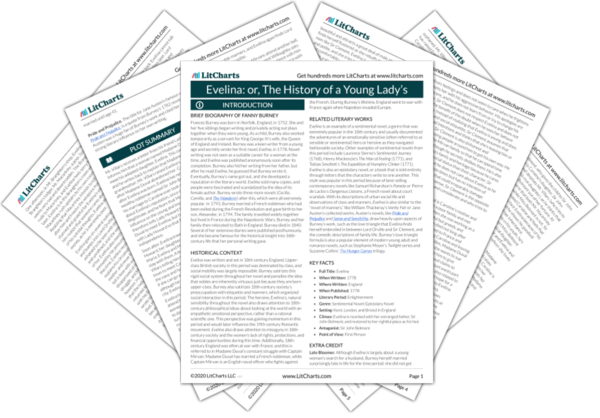Although Sir Clement is an unpleasant and immoral person beneath his outward etiquette, he is still a nobleman with a large amount of social clout. The Branghtons, in contrast, are middle-class and do not have good manners, so Evelina worries that Sir Clement will look down on her because she is related to them. Mr. Branghton misogynistically assumes that, because his daughters have wandered off, they are asking to be assaulted by men. Women in 18th-century Britain were treated as more corrupt and deceitful than men, so any abuse they suffered was often seen as deserved.
